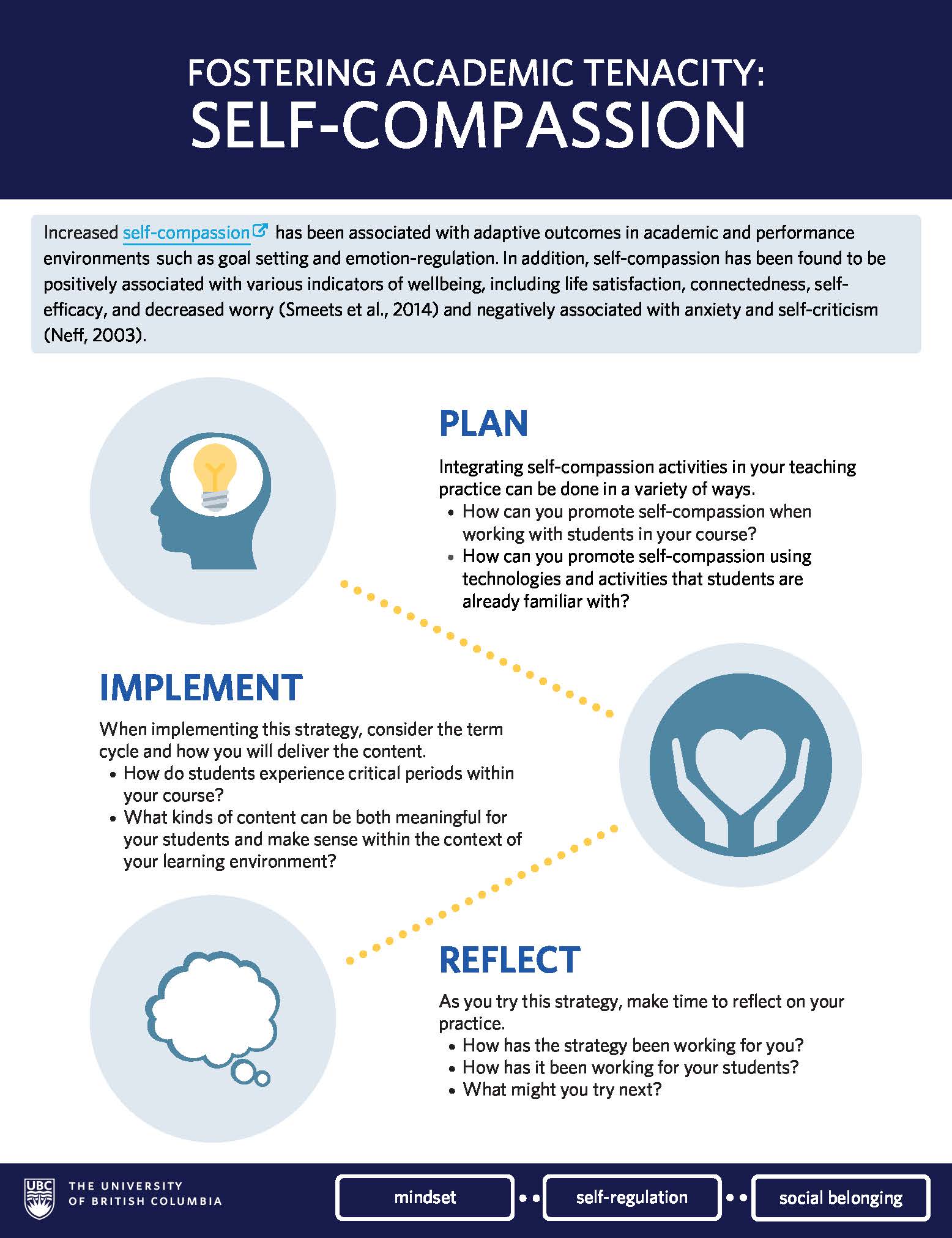Self-compassion is a concept which includes the independent, yet interactive, constructs of self-kindness, common humanity and mindfulness (Neff, 2003). Increased self-compassion has been associated with adaptive outcomes in academic and performance environments such as goal setting and emotion-regulation. For example, a positive relationship has been found between self-compassion and time spent studying after facing a challenging test (Breines & Chen, 2012). In addition, self-compassion has been found to be positively associated with various indicators of wellbeing, including life satisfaction, connectedness, self-efficacy, and decreased worry (Smeets et al., 2014) and negatively associated with anxiety and self-criticism (Neff, 2003).
Promising Practice
Selected References and Measures
Go Further

Recommended Citation: Health Promotion & Education, UBC. (2019). Fostering academic tenacity: Self-Compassion. Retrieved from: wellbeing.ubc.ca/wble
We gratefully acknowledge the financial support for this project provided by UBC Vancouver students via the Teaching and Learning Enhancement Fund.